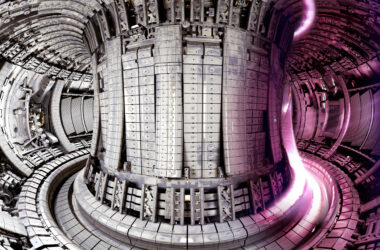A groundbreaking partnership has been announced between the UK and Singapore, leveraging the power of space technology.
The new collaboration aims to harness the capabilities of satellite technology to address and manage the adverse effects of climate change. As both nations come together, they bring forth a combined expertise that promises advancements in space missions and tangible solutions to some of todays pressing environmental issues.
Singapore UK Space Partnerships
Spearheaded by the UK’s largest regional space cluster, Space South Central, the mission has been given significant financial backing from the UK Space Agency.
The primary goal is to assist Singapore, a nation grappling with the multifaceted challenges of climate change, in its management and mitigation efforts. By closely monitoring air pollution and atmospheric weather patterns, the mission aims to provide invaluable data.
The data derived from this mission will aid in immediate disaster response and provide a clearer picture of the long-term effects of climate change. Such insights are invaluable, offering a roadmap for future strategies and interventions.
While the data will serve Singapore specifically, it will also give us insights that could benefit regions across the globe. As the world stands on the brink of environmental shifts, the information gathered from this mission is one part of how we unlock better disaster response strategies and a deeper understanding of climate change’s delicate dynamics.
Singapore is no stranger to the perils of air pollution. Often, the city-state finds itself enveloped in a haze, a direct consequence of wildfires from neighbouring countries. This recurring issue underscores the situation’s urgency and the need for effective monitoring systems.
By focusing on surveilling air pollution and forecasting atmospheric weather, the mission aims to arm Singapore with the tools it needs to respond proactively. The stakes are high, especially when considering the broader implications of these environmental challenges. Air pollution, coupled with the pressures of a growing population and economy, places immense strain on Singapore’s water supply, making it increasingly vulnerable to the whims of climate change.
At the heart of this mission is a cutting-edge electronic propulsion system, which offers enhanced manoeuvrability and efficiency for satellites. The project also boasts state-of-the-art onboard AI processing capabilities. This AI integration ensures real-time data analysis, allowing quicker and more accurate decision-making.
Quantum technology, a field at the cutting edge of modern tech, plays a pivotal role in the mission’s next-generation sensors. The crafts sensors, enhanced by quantum mechanics principles, promise unparalleled data collection precision. Complementing these innovations is the introduction of miniaturized timing mechanisms, ensuring synchronization and accuracy in data transmission.
From the UK, the project sees active participation from the University of Surrey, the University of Southampton, and the University of Portsmouth. Under Space South Central’s banner, these institutions bring a wealth of expertise and innovation to the table. Complementing their efforts is Twinparadox Ltd., further solidifying the UK’s commitment to the mission.
On the Singaporean front, the collaboration is equally robust. Institutions like the National University of Singapore, Nanyang Technological University, the Office for Space Technology & Industry (OSTIn), and the Agency for Science, Technology, and Research (A*Star) play pivotal roles. Their involvement ensures that the mission is well-equipped to address the unique challenges faced by Singapore and the broader Southeast Asian region.
Beyond the immediate environmental benefits, this collaboration holds significant economic and global implications. With its vast potential for innovation and commercialization, the space industry presents many opportunities. By tapping into these, nations can drive economic growth, create jobs, and foster a culture of scientific discovery.
TLDR (Too Long Didn’t Read):
- UK and Singapore collaborate on a groundbreaking space mission to address climate change.
- The project focuses on monitoring air pollution and atmospheric weather patterns.
- Cutting-edge technologies like electronic propulsion, onboard AI processing, and quantum-enabled sensors are being utilized.
- Multiple institutions from both nations are involved, showcasing the strength of international partnerships.
- Beyond environmental benefits, the collaboration holds significant economic and global implications.








